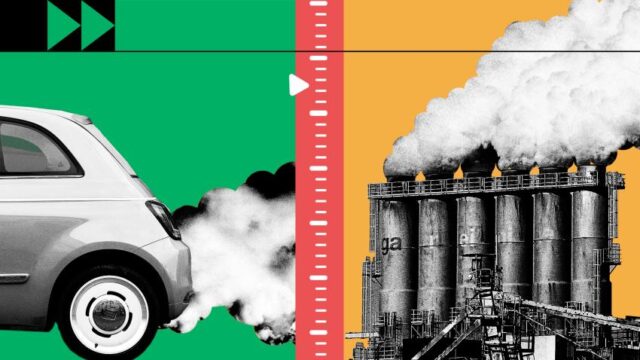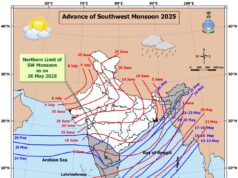Climate changes are occurring in every region and globally, according to the latest Intergovernmental Panel on Climate Change report. As the world’s latest and most rigorous scientific assessment of the physical basis of climate change, the report defines changes that are unprecedented in thousands if not hundreds of thousands of years. It emphasizes that there is still time to act, but it must happen immediately. Limiting climate change demands strong and sustained reductions in greenhouse gas emissions from human activities such as burning fossil fuels (quoted by…….Intergovernmental Panel on Climate Change report IPCC.)
Image source: IPCC
What is climate change?
Climate change refers to long-term changes in the Earth’s climate, particularly changes in temperature, precipitation, and wind patterns, that are primarily caused by human activities such as the burning of fossil fuels, deforestation, and industrial processes. These activities release large amounts of greenhouse gases, such as carbon dioxide, methane, and nitrous oxide, into the atmosphere, which trap heat and cause the Earth’s temperature to rise.
As a result of climate change, we are seeing rising sea levels, more frequent and intense weather events such as heatwaves, droughts, floods, and hurricanes, changes in the distribution of plant and animal species, and a variety of other impacts that are affecting people and ecosystems around the world. Addressing climate change requires reducing greenhouse gas emissions and transitioning to a more sustainable, low-carbon economy.
What are the statistics which show concerns for clmate change?
There are many statistics that show the concerns for climate change. Here are a few key ones:
- Global temperature rise: The Earth’s average surface temperature has risen by about 1.1°C (2.0°F) since the late 19th century, and the last decade was the warmest on record.
- Rising sea levels: Sea levels have risen by about 20 cm (8 inches) since 1900, and the rate of rise is accelerating.
- Melting ice: Arctic sea ice has shrunk significantly in recent decades, and the Greenland and Antarctic ice sheets are losing mass at an accelerating rate.
- Extreme weather events: There has been an increase in the frequency and severity of heatwaves, droughts, floods, and hurricanes in many parts of the world.
- Ocean acidification: As the oceans absorb more carbon dioxide, they become more acidic, which is affecting marine ecosystems and the species that rely on them.
- Biodiversity loss: Climate change is one of the main drivers of the current global extinction crisis, with many species at risk of disappearing.
- Public opinion: Surveys show that a growing number of people around the world are concerned about climate change and support action to address it.
These statistics and many others demonstrate the urgent need to address climate change and reduce greenhouse gas emissions to limit its impacts on our planet and future generations.
What is the deadline to avoid extreme effects of climate change and if not fulfilled what will be the consequences
There is no single deadline to avoid the extreme effects of climate change, as the impacts of climate change are already being felt and will continue to be felt for many decades to come. However, scientists and policymakers agree that the next few decades are critical for taking action to reduce greenhouse gas emissions and limit global warming to less than 1.5°C above pre-industrial levels.
The Intergovernmental Panel on Climate Change (IPCC) has warned that if global warming exceeds 1.5°C, we are likely to see more frequent and severe heatwaves, droughts, floods, and other extreme weather events. We could also see significant impacts on food and water security, biodiversity, and human health. If we fail to take action to reduce greenhouse gas emissions, the consequences could be catastrophic, including widespread displacement of people, conflict, and even the collapse of some societies.
However, it is important to remember that it is not too late to take action to address climate change. There are many solutions available today, such as renewable energy, energy efficiency, and sustainable agriculture, that can help us reduce greenhouse gas emissions and limit global warming. The sooner we act, the more we can limit the worst impacts of climate change and build a more sustainable future for ourselves and future generations.








